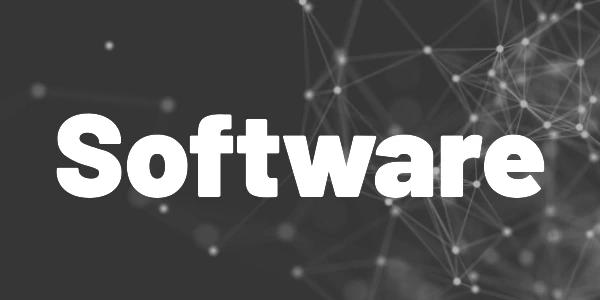Introduction
Before I came up with this article about 6 privacy tips to protect your online life, I had to learn the hard way that not everyone on the internet is your friend. And I want to tell you about it so you can take action before something happens!
I recently received a lot of warning messages because hackers tried to access one of my online accounts. They didn’t succeed, but it got me thinking.
- Am I doing enough to protect my online account?
- Am I exposing myself to unnecessary risks on the internet?
- What do I do in case of a disaster?
As a content creator and author, I have a small side hustle running that entirely relies on online tools. And I am serious when it comes to protecting what I built over the years.
So, I wanted to share my strategies for online security with you. There probably won’t be anything new, but I’ll add real-life stories to every section to make you more aware of the consequences that could arise.
Here are 6 privacy tips to protect your online life!
#1 Think about what you share on Social Media!
This may seem obvious and something that everyone knows. However, it can be alarming to see what others can find about you online. The situation becomes even worse when you have to face the consequences of your sharing habits.
I recently watched a TV show that focused on exposing individuals who share personal information online, aiming to raise awareness about the potential problems. After viewing the show, I promptly reviewed my privacy settings and even deleted an unused social network account.
It was shocking to see how one can be exposed in front of millions without knowing what is happening. And I don’t want to know the consequences if someone has malicious intentions.
Ok, what happens in the show?
People purchased tickets for the show online, providing their names and addresses. The TV crew subsequently searched the internet for social media accounts or any other available material, which they then transformed into a humorous and educational show.
An extreme example is one guy that gets a paid pizza delivered to his home address that he didn’t order!
Here is a 10-minute excerpt of the show in German, with automatically translated subtitles in English available.
It was funny to sit on the couch, laugh, and think “This can’t happen to me,” but on the other hand, I instantly checked some apps and the privacy settings.
Just take a moment and think about what you share online!
HERE is another Youtube video of a guy finding flight information only with an image taken from a passenger. All tools are available for free on the internet and it is just amazing and scary at the same time how much information people can extract from a single photo uploaded to social media!
Those videos alone should be enough to apply my 6 privacy tips to protect your online life.
#2 Encrypt data in your cloud storage
We all use cloud storage. As soon as you create your Microsoft, Apple, or Google account, some GB of cloud storage are always included. OneDrive, iCloud, and Google Drive are the perfect solutions for the companies to tie users more to their ecosystem.
But when people start uploading sensitive data with personal information, it can become problematic. The storage is not encrypted by default, and the providers actively scan the content. There are stories about Microsoft blocking user accounts because a scanner found “pornographic material” (the user’s child was naked in a bathtub). Read the full story here:

My advice is to not enable automatic camera upload to the cloud and only store data encrypted when it’s sensitive or contains personal information!
For encryption, I can recommend Cryptomator. If you know TrueCrypt/VeraCrypt, you know how it works. It creates an AES-256 encrypted and password protected folder that can be uploaded to the cloud. It’s free, easy to use, and open source. The only downside that you cannot access your data with a web browser anymore. Here is how you set it up:

Here is another example of what can happen if you don’t encrypt your data in cloud storage.
#3 Prevent data brokers from selling your personal information
Personal information is a precious good for many on the internet. There are many business that specialize on collecting and selling them. But you can prevent them from using your data. Regulations like GDPR, CCPA, or PIPEDA give customers the control to decide what happens with their data.
Unfortunately, there are many data brokers, and it’s a lot of work to contact all of them and enforce your rights. Incogni or DeleteMe can assist you with that. They maintain a growing list of data brokers and contact them on your behalf at regular intervals to ensure that your data is not indexed.
The service isn’t free, but it’s less than what Netflix charges you. Check out the Incogni blog where common scams are explained.
Every database that contains your information is a risk. When data leaks, you are no longer in control. Reduce your risk with Incogni!
I tried Incogni a while ago. If you are interested in details, then here is my deep dive:

❗ Warning
The best way to protect your data is to never even enter it on any website online!
#4 Unsubscribe from mailing lists
It can be helpful to inspect your spam folder from time to time. Sometimes, important emails get marked as spam that you might easily miss. But it’s also worth having a look at the other spam emails. It might be that a company sends you many emails on different topics because you signed up for it in the past.
In that case, use the unsubscribe link in one of those emails to get rid of all future ones. This can significantly reduce the amount of spam! The emails might seem unrelated in terms of the topic, but the company behind them is the same. Unsubscribe once and enjoy a clean spam folder.
#5 Use a password manager
When you spend many hours on the internet every day for years, you use a lot of services, apps, or portal. And all of them probably require a user account and a password.
And here we already have a major flaw because people are lazy. Many passwords are weak, easy to crack, and used on multiple sites.
Let’s see how password managers can help us with those problems.
Password leaks
Unfortunately, it is still common to use the same password for multiple (or all) accounts. If that password gets leaked (and there are new leaks basically every day), you are at risk!
Have I Been Pawned is a good source to check your email is affected by a data breach. If so, you should change it.
A leaked password is like a spare key to your home. Maybe someone will come by and rob you, or maybe not. But you wouldn’t even take the risk; instead, you would change the locks immediately, wouldn’t you?
Password strength
Another problem is that many passwords are too easy. HERE is a list of the top 30 passwords in the world that a research time collected. Is one of yours on the list? They are all crap and especially ease to guess or crack. HERE is a tool to find out the strength of your password and how long it would take to get it.
Finding good passwords is often not that easy. Online password generators can help you with that. Try out VPNMentor to create secure and strong passwords.

Password managers
The simple solutions are password managers. You only have to remember one strong master password and the tool manages the individual passwords for the different platforms. They usually include a password generator, integrate into web browsers and apps, and offer to insert or store login credentials in the right moments.
I use Bitwarden as my password manager. It’s free, open source, and works on all major platforms.
There are many alternatives but the main point is that you use one. I have over 100 login credentials saved in my vault. If a password gets exposed, I just need to change this one.
It will take some time to set it up depending on how many accounts you have, but it’s worth the trouble.

Storing passwords in the browser
This is controversial and you will find different opinions on that.
My opinion: If you use the same browser on all devices (mobiles, PCs, Macs), it’s ok. But you tie yourself to a specific browser. Dedicated password managers offer more features while a browser sounds easier to begin with. Just make sure that you can export the passwords somehow if you ever want to change your browser!
#6 Use Two-Factor Authentication
Two-factor authentication means that you need to supply two pieces of information to gain access. Those factors can be
- Passwords
- PINs
- Fingerprints
- Face IDs
- SMS tokens
- Email tokens
- Authenticator app tokens
I recently got a lot of warning messages because hackers tried to access one of my accounts. But since I have 2FA activated, they didn’t succeed.
Every major online service offers two-factor authentication and if you care about your account, you should secure it! The setup is easy, done within a few minutes, and free of charge.
Here is a famous story of a guy being hacked. You will get some insights what you can do to prevent this.

Conclusion
We all feel pretty safe in life until something happens. When your hard drive dies, you start creating backups. When your house is damaged in a storm, you think about insurance. And when your online activities have negative consequences, you take steps to mitigate them.
But all of that could have been done beforehand. Don’t wait for a disaster to occur. Take action now!
With these 6 privacy tips to protect your online life I want to make sure that your online presence is not easily exploited or destroyed.
Related articles



.jpg/220px-MLB_All-Star_Red_Carpet_Parade_(48266260657).jpg)


